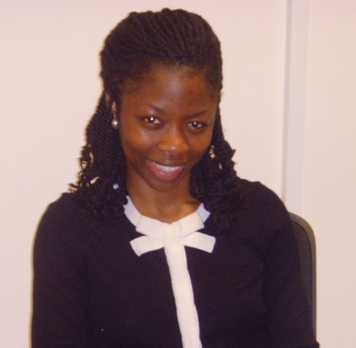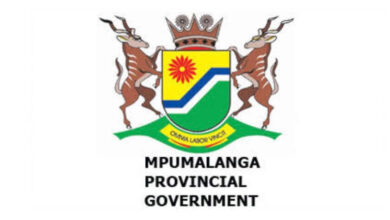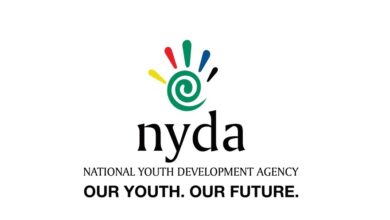Obiocha Ikezogwo Interview

 “ I have been affectionately referred to as stubborn (strong-willed), cocky (confident) and expressive (enthusiastic). *smiles* Obiocha Ikezogwo is a ‘doer’, who is driven and compassionate in equal measure. I describe myself as a juxtaposition. I am disciplined to military precision, yet vigorously indulge my vices (dancing). Listening to world premieres of Wael Binali excites me as much as abseiling a 300ft tree in the Lake District. I delight in difference, from shaking my stiletto heels in Budapest to racing mokes down sleepy little islands in Southern Italy. I love the vivacity of variety. I am God’s loyal servant, my father’s daughter, and a deeply proud African woman. *smiles*”
“ I have been affectionately referred to as stubborn (strong-willed), cocky (confident) and expressive (enthusiastic). *smiles* Obiocha Ikezogwo is a ‘doer’, who is driven and compassionate in equal measure. I describe myself as a juxtaposition. I am disciplined to military precision, yet vigorously indulge my vices (dancing). Listening to world premieres of Wael Binali excites me as much as abseiling a 300ft tree in the Lake District. I delight in difference, from shaking my stiletto heels in Budapest to racing mokes down sleepy little islands in Southern Italy. I love the vivacity of variety. I am God’s loyal servant, my father’s daughter, and a deeply proud African woman. *smiles*”
Growing up in Nigeria how would you describe your childhood?
In 2 words: ephemeral, and carefree. My father became a single parent when I was 4years old. With 3 young girls to look after, ours quickly became an equal opportunities household. Everybody contributed to the housekeeping, and the homework. We had to become pillars for one another. It was the only way to keep our heads above water.
Having said that, my father ensured that we had everything we needed. Beyond competing for the #1 spot in my academic year, I was trouble-free. I had no idea that water was a utility expense, until I arrived in England. (smiles) My teenage years, however, were a shockingly sharp contrast to my childhood.
You are a Petroleum Economist. Please tell us more about what your work entails?
What do I do? *laughs* I work for Palantir Solutions, a petroleum consultancy firm whose clients include BG, Afren and Tullow. I value oil and gas projects across the Exploration and Production chain, using my knowledge of economic modelling, fiscal regimes, and portfolio management to provide decision analysis that supports my clients’ investment decisions. Often, these decisions take the form of questions, e.g. “should we drill an Exploration well?” or “should we acquire X% equity in this oil field next door?” or “what is the optimal mix of licenses and assets that we need in our portfolio?”
I assess petroleum projects in light of Technical (subsurface) and Commercial (surface) factors such as flow rate, and crude oil price. The levels of uncertainty and risk associated with each of these factors must be evaluated. The petroleum business is ultimately not about producing hydrocarbons, but about making money from doing so.
You chose to study International Business, Finance, and Economics why business?
Is it something you have always been drawn to? I was attracted to the variety on offer within my degree program. I had enjoyed Business Studies at college, but had never studied Economics, so the program offered a challenge to learn new things, in addition to the comfort of the familiar. I didn’t know what career path I wanted to follow, so I chose a discipline that afforded me a choice of diverse professions.
Studying in the Diaspora what are some key elements you think African learning institutions need to emulate to achieve the same standard of education or opportunities studying at Manchester Business School has presented to you?
I have been privileged to study at one of the finest business schools in the world. A key element of my rigorous education was the method in which I was taught. Known as Problem-Based-Learning, it was a highly interactive process between me, my lecturer, my peers, and the real world. Examinations involved case studies of real-life business problems, and rather than being spoon-fed ‘model answers’, I was challenged to think critically about a problem, and reason logically towards its solution. Such solutions involved collaborating with teachers and peers; I quickly learnt the value of teamwork.
My learning was also focused on personal and professional development. I was constantly reminded that academic excellence on its own was simply, not enough. Those who add real value to society possess a toolkit of skills and attributes, in addition to knowledge. Through opportunities such as the Manchester Leadership Programme, I developed this toolkit, and learned about the contribution that I could make to society, as a participant in corporate life and civil service. I became self-aware, which in turn brought self-assurance. It was less about what was examined, and more about what was imparted. These are the elements that African learning institutions should seek to emulate.
Education, if administered correctly, should be a great enabler, a grooming hub where young people can develop confidence in their capabilities and contributions to community. Once, at a careers seminar, a speaker mentioned that 70% of graduates in Nigeria were unemployed, underemployed, or unemployable. Then, it dawned on me that even within an enabling environment, with appropriate infrastructure and resources, a portion of that 70% would be ill-equipped to capitalize on opportunities to contribute to society, because they are unemployable. Yet, they have been educated. It doesn’t add up.
What is your area of activism?
The social and economic empowerment of women, and the development of young people, particularly through education and mentoring.
What motivated you to empower women and youths?
As far back as I can remember, I have always been drawn to helping others. My father taught me that “hands that serve are holier than lips that pray.” I have dedicated my formative years to empowering women and youths. At university, I was presented with opportunities to coach young people, as a Student Ambassador and Peer Mentor. My passion for using education to develop others has led me to my current role as a School Governor of Harris Academy, South Norwood.
I believe that knowledge is responsibility. To be aware of a problem is to be obligated to do something about it. The world, as we know it today, exists because someone solved yesterday’s problems. So, when I became aware of the dearth of positive public images of black women in European society, I made a contribution to its solution. Taking inspiration from our American cousins, I co-founded ‘Yaaya’, a social change initiative, aimed at promoting positive images of black women in Europe. We celebrate the achievements of black women across Europe, and seek to inspire ambition by sharing motivational stories of black women on our blog.
You were selected for the 2013 MILEAD Fellowship, what inspired you to apply?
That is a very good question. I mentioned earlier that awareness of a problem begets a responsibility to contribute to its solution. Yet, it is not enough to want to make a difference. One must also know how to set about it. That is what inspired me to apply for the MILEAD Fellowship. For me, it was a step in the right direction; a pathway, to gaining the knowledge and resources I needed for transformational leadership. In addition, the program offered the opportunity to join a supportive network of like-minded individuals, who are passionate about empowering African women and young people. I am an engineer of social justice. But I cannot realise my vision for African womanhood alone.
Why is it important to have initiatives like MILEAD Fellowship in Africa?
Because Africa is one place in which women are still largely viewed and treated as second-class citizens; such views perpetuated by religion, culture or otherwise. Global perceptions of women in African society are mostly negative: lack of access to education, and disenfranchisement. Africa has its fair share of problems, this is true. But, it is also important to highlight the combatant efforts of those individuals and organizations who work to empower African women. Chimamanda has warned us about the danger of a single story.
I read an article published by The Guardian that emphasised the importance of role models. Role models bring about those “I could do that!” moments. It is important that initiatives like the MILEAD Fellowship exist. They equip future leaders with the tools, networks, and resources to transform Africa. Through our work and activism, we Fellows can inspire other women to think “I could do that! I should do that! I will do that!”
What would you like to change or improve about Africa?
I would change our perspectives on women. And I would start by socialising our children differently, girls and boys. There is a deeply ingrained sense of inequality towards women in Africa, which cannot be rooted out simply by sending more girls to school. What use is that, if she comes home, and her parents still treat her as subordinate to her brother? It’s in the little things and the big things. Your brother gets the bigger piece of meat from the pot. Then he gets to go to school. Because he is a boy. I challenge anyone not to feel hard done by, in that situation.
What does it mean to be a Nigerian woman in the 21st century?
It means freedom. The freedom to weigh up options and make choices about my future. Globally, there are a lot more opportunities for women and black people than there were 50years ago. But there is more work to be done. Africa needs to empower its women. Europe needs to improve its integration and inclusion of black people into all areas of society. That is one of the reasons I co-founded Yaaya. Apart from giving a voice to black women to share their own stories, there is a real need for organisations like Yaaya to facilitate dialogue and motivate action on the underlying issues of integration and identity that shadow European society.
If you were president of Nigeria for a day what would be the first thing you would do?
My sister once said to me “Obiocha, lack of knowledge is darkness.” If I were president of Nigeria for 24hours, I would implement policies to deliver high-quality, accessible, and affordable education to Nigerians. Everything from making formal education compulsory, to subsidizing tuition costs, and funding world-class research centres and innovation hubs. I would ensure teachers received appropriate compensation and targeted career development. In my role as School Governor for the Harris Academy South Norwood, I have come to appreciate the importance of equipping teaching staff with the skills and resources to deliver interactive and engaging lessons. Education remains one of the most effective and assured forms of developing human and national resources.
What will it take to end poverty in Africa?
Good, responsible governance. By all, for all. I don’t use the word ‘leadership’, because that often implies that it is the responsibility of a few people at the helm of society. I use the word ‘governance’ to include all spheres of society, from public institutions to corporations and citizens. We all have a duty to each other. Poverty in Africa is not the result of scarce resources, but of poor governance. Nigeria is a well-documented lesson in ‘how not to govern’. Or as the Good Book puts it, “where there is no vision, the people perish.” Proverbs 29:18
Who are your top 3 role models in Africa?
One of them is Joyce Banda, President of Malawi. She strikes me as an unapologetic and confident girl-next-door. In the world of politics, as with business, there is no room for timidity. I respect her pride and constant allusion to her humble beginnings. Another of my top 3 is Leymah Gbowee, Liberian peace activist and joint 2011 Nobel Prize winner. In a world full of evil and selfishness, Gbowee is proof of the might of courage and nobility. She is one of a dying breed of heroines. Then there’s Yaa Asantewaa, Queen of the Ashanti Empire. She famously led the ‘War of the Golden Stool’ against the British invasion in 1900. Yaa Asantewaa represents a fierce and fearless woman who boldly addressed injustice and led a nation to reclaim its identity. So, ‘Yaaya’ was named after her. Naturally. *smiles*
What are your favourite hangout spots in Nigeria?
When I’m in the mood for live entertainment, I head to Piccadilly Suites in Lekki Phase One. Good food and great dancers! The grilled fish is especially delicious. I want to earn enough to hire their chef! The rooftop lounge at the 4-Points Hotel is also a favourite of mine. There’s a special place in my heart for their Merlot.
What are you listening to at the moment?
In true thoracic fashion, an assortment of songs, including I Hope You Dance (Lee Ann Womack), Hall of Fame (The Script), Sowa (Fatoumata Diawara), Nobody Greater (VaShawn Mitchell), Schoolin’ Life (Beyoncé), Amazing God (William Murphy), The Oryx and the Unicorn (Wael Binali)
What is the best book you have ever read?
For me, there is no “best” book. I have read a lot of fascinating pieces, including: State of Africa (Martin Meredith), Half of a Yellow Sun (Chimamanda Adichie), I Know Why The Caged Bird Sings (Maya Angelou), The Kite Runner (Khaled Hosseini), Master of the Game (Sidney Sheldon), The Man Who Mistook His Wife For A Hat (Oliver Sacks)
How can other youth connect with you?
On LinkedIn: www.linkedin.com/purityikezogwo
On Facebook: Obiocha Ikezogwo
On Yaaya: www.iamyaaya.blogspot.co.uk




